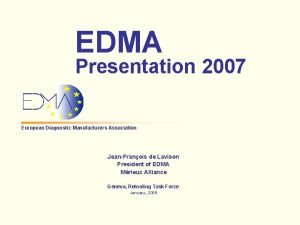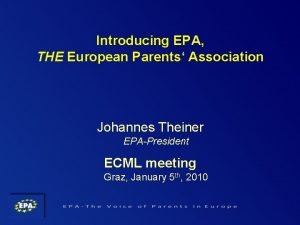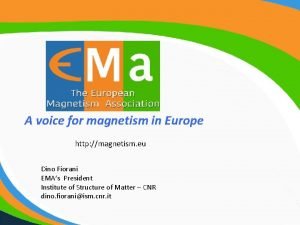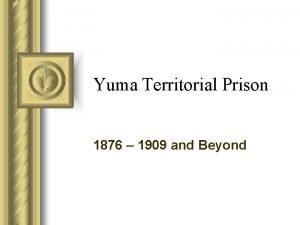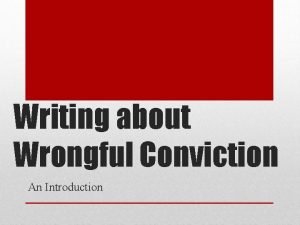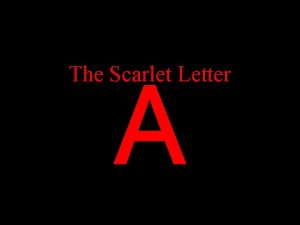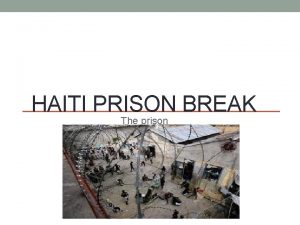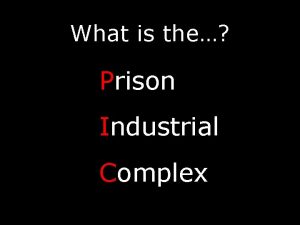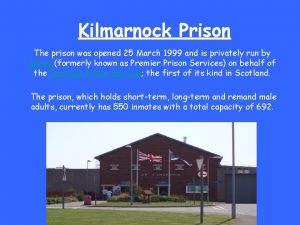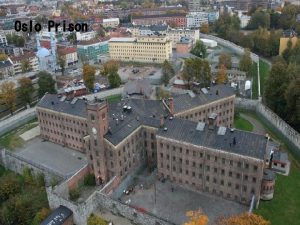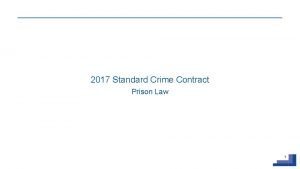European Prison Education Association European Prison Education Association













- Slides: 13

European Prison Education Association

European Prison Education Association working to promote sound principles and good practice for prison education in Europe. . . and beyond

The European Prison Education Association is an organization made up of prison educators, administrators, governors, researchers and other professionals whose interests lie in promoting and developing education and related activities in prisons throughout Europe in accordance with the recommendations of the Council of Europe. EPEA is recognized by the Council of Europe as a Non-Governmental Organization (NGO). It is committed to working with prison administrations in Europe to further its aims, but is totally freestanding and independent. Currently there are more than 800 EPEA members in 35 countries in Europe and elsewhere. Apart from serving the aims of the organization by encouraging the formation of national branches, etc. the EPEA organizes a major international conference on prison education every two years. EPEA is registered as an NGO and non profit organization

Aims The main aim of The EPEA is to promote education in prison according to Council of Europe recommendations. OBJECTIVES which are also fundamental to The EPEA are: • To support and assist the professional development of • • those involved in prison education through European cooperation To work with related professional organizations To support research in the field of education in prisons

REVIEW OF VISION In 1996 a small committee, looking ahead, envisaged the following main developments • 800+ members throughout Europe and the rest of the world • Registration as an official European organization with an office and staff • Increased influence on developments in Eastern Europe and on research • Regional and Liaison Persons conferences • A World Wide conference under the auspices of the EPEA • Internet Global communication

Strategies “the key priorities or the main direction the Steering Committee feels the EPEA needs to push itself towards, in order to achieve its Vision 2006 dreams” • • • Improvement of EPEA's networking Promotion of Council of Europe Recommendations on Prison Education Research Stabilization of the Organization Interfacing with other languages Placing EPEA in a secure financial position

General action plans 1. Improvement of EPEA's networking • Put pressure on Liaison Persons to hold meeting of • • members at least twice a year Put pressure on members to establish national branch Encourage national Conferences - places to be reserved for regional members Develop better information materials Improve the Directory of members to include subject areas

2. Promotion of Council of Europe Recommendations on Prison Education • Distribute copies to Ministries of Justice • Local promotion through Liaison's Persons and members • • • 3. Research Encourage/invite research by Education Departments in universities Invite survey of prison education in Europe Encourage research through national branches Draft a proposal for another research project under Grundtvig program Encourage research by practitioners in prison education

4. Stabilization Of The Organization Support and complete the Grundtvig project underway Strengthen involvement and ties with the Council of Europe Seek to provide a permanent address for EPEA Co-opt consultants for specific functions 5. Interfacing with other languages More sympathy for use of other language(s) in publications Translation of foundation documents (accurate) Other language versions of Website

6. Placing EPEA in a secure financial position Increase membership European Funding (Grundtvig 2) Apply to institutions/governments as NGO Approach personalities Upgrade brochure Use conference to market organization

Steering Committee The Steering Committee of the EPEA is elected by the members of the EPEA. It meets every 6 months in some part of Europe, and convenes with the General Council every two years. Chairperson Deputy Secretary Treasurer Membership Secretary Anne Costelloe (Ireland) Anita Wilson (Ireland) Gisle Grahl Jacobsen (Norway) Torfinn Langelid (Norway) Regional Representatives NW Region (until 2007) NW Region (until 2008) Central (until 2007) Central (until 2008) Mediterranean (until 2007) Mediterranean (until 2008) Per Thrane (Denmark) Kerstin Ekholm-Erestam (Sweeden) Ms Katinka Reijnders (Netherlands) Péter Ruzsonyi (Hungary) Petros Damianos (Greece) Joseph Giordmaina (Malta)

EPEA Branches FOKO, Norway IPEA, Ireland EPEA France EPEA Malta EPEA HELLAS (will be created shortly)

For more information regarding membership, contact your national liaison person, or visit www. epea. org
 European diy retail association
European diy retail association European diagnostic manufacturers association
European diagnostic manufacturers association European university association
European university association European biomass industry association
European biomass industry association European delirium association
European delirium association Johannes theiner
Johannes theiner Magnetism.eu
Magnetism.eu Yuma territorial prison dark cell
Yuma territorial prison dark cell Sollentuna prison
Sollentuna prison What happens in chapter 23 of to kill a mockingbird
What happens in chapter 23 of to kill a mockingbird Barn- och elevombudet
Barn- och elevombudet Stanford prison experiment research design
Stanford prison experiment research design Scarlet letter prison door
Scarlet letter prison door Judge challeen poem
Judge challeen poem

